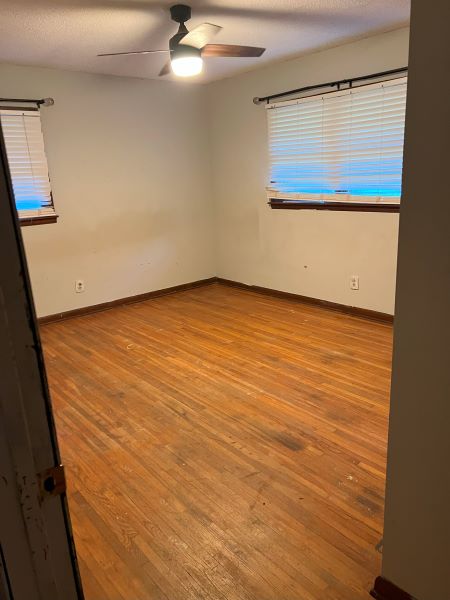Question from mailing list: How hard is it to rebuild credit after filing for bankruptcy? Also I gave my car back to the lender.
Rebuilding Credit After Bankruptcy
Going through bankruptcy is tough, and if you had to give your car back to the lender, well that makes it even harder. Here is the run down on how the bankruptcy impacted your credit and what to do now.
What is Bankruptcy?
Bankruptcy is a legal way to get help if you have a lot of debt and can’t pay it back. It’s like a “reset button” for your finances. But it also leaves a negative mark on your credit report, which can make it tough to borrow money or get credit cards afterward.
Why Returning Your Car Makes Things Harder
When you can’t pay your car loan, you might have to return the car to the lender. This is called a “repossession.” Repossessions make it even more difficult to rebuild credit because they also leave a negative mark on your credit report.
Understanding The Impact To Your Credit Report
A credit report is like a report card for how well you manage your money. There are 3 main credit reporting agencies in the US. They are Experian, Equifax and Trans Union.
These companies keep track of your credit report and give it a score based on how you pay back your debts. The higher your score, the better your credit and the easier it will be to obtain loans and credit cards at reduced rates. Credit scores range from 850 down to 300.
- 300 – 579: Poor Credit
- Individuals in this range may have a history of missed payments, defaults, or bankruptcy.
- Likely to have trouble getting approved for new credit.
- 580 – 669: Fair Credit
- Some lenders may approve credit applications, but often at higher interest rates.
- May have some late payments or other credit issues.
- 670 – 739: Good Credit
- Generally qualifies for most loans and credit at favorable rates.
- Represents responsible credit use.
- 740 – 799: Very Good Credit
- Likely to qualify for better rates and loan terms.
- Strong history of on-time payments and responsible credit use.
- 800 – 850: Excellent Credit
- The best range for securing loans at the lowest interest rates.
- Represents a long history of excellent credit management.
A credit score of 820 is considered excellent, while a score of 300 is considered poor. Filing for bankruptcy can significantly lower a credit score, often dropping it into the “poor” category.
People with higher credit scores before bankruptcy tend to see a more significant drop.
- If the starting score is around 700 or higher, the score may drop by 200 to 250 points.
- If the starting score is lower, around 600 or less, the score may drop by 100 to 150 points.
The Challenges of Rebuilding Credit
- Low Credit Score: Bankruptcy and repossession can drop your credit score to around 500,
 which is really low. This makes it hard to borrow money, get a credit card, or rent an apartment.
which is really low. This makes it hard to borrow money, get a credit card, or rent an apartment. - High-Interest Rates: If you can borrow money, the interest rate will be very high. This means you’ll pay more in interest, making things more expensive.
- Few Loan Options: Lenders will see bankruptcy and repossession as risky. They might not want to give you a loan or a credit card at all.
- Time to Recover: Bankruptcy stays on your credit report for up to 10 years. Repossession stays for seven years. This long-lasting impact can make life tricky.
Steps to Rebuild Your Credit
Even though it’s tough, rebuilding your credit is possible. Here’s how you can do it:
- Check Your Credit Report: Get a free copy of your credit report from annualcreditreport.com. Look for mistakes that could be hurting your score. If you find any errors, report them to the credit bureau.
- Create A Budget: Create a budget you can live with! Don’t be overally aggressive or you won’t be able to stick to it. Focus on building up your savings and paying off your high interest debt.
- Get a Secured Credit Card: Secured credit cards require a deposit upfront, but they can help rebuild your credit if used responsibly. Spend only what you can afford and pay off the balance each month.
- Become an Authorized User: Ask a family member with good credit to add you as an authorized user on their credit card. This can improve your score without you needing to spend any money.
- Pay Your Bills On Time: Set reminders or use automatic payments to ensure you never miss a bill payment. Late payments will not only incur late fees, but will hurt your credit score even more.
- Take Out a Credit-Builder Loan: Some credit unions and banks offer credit-builder loans to help people improve their credit scores. You borrow a small amount and pay it back over time, building your credit in the process.
- Apply for a Store Credit Card: Store cards are often easier to get than regular credit cards. They can help improve your credit if you use them carefully. Not all of these companies will report your usuage to the credit reporting agencies. You may need to self report these.
- Limit New Credit Applications: Every time you apply for credit, it leaves a mark on your report. Apply only for cards or loans you’re likely to get.
- Be Patient: Rebuilding credit takes time. Make steady progress by paying bills on time and using credit wisely.
How Long Will It Take?
Rebuilding your credit isn’t quick. You might see some improvement in a year or two if you follow the right steps. But to get back to a strong credit score, it can take five+ years.
The Bright Side
While it’s not easy to rebuild credit after bankruptcy and repossession, it’s possible. Here are some positive points to keep in mind:
- Learning Opportunity: You’ll learn how to manage money better and avoid mistakes in the future.
- New Beginnings: Bankruptcy gives you a fresh start to rebuild your finances.
- Achievable Goals: With patience and hard work, you can reach your goals and improve your credit score.
Rebuilding credit after bankruptcy and returning your car is hard work, but it’s possible. By following the steps in this guide, you can make steady progress toward a brighter financial future. Remember to be patient, stay positive, and keep working towards your goals.
Good luck, and keep moving forward!




















